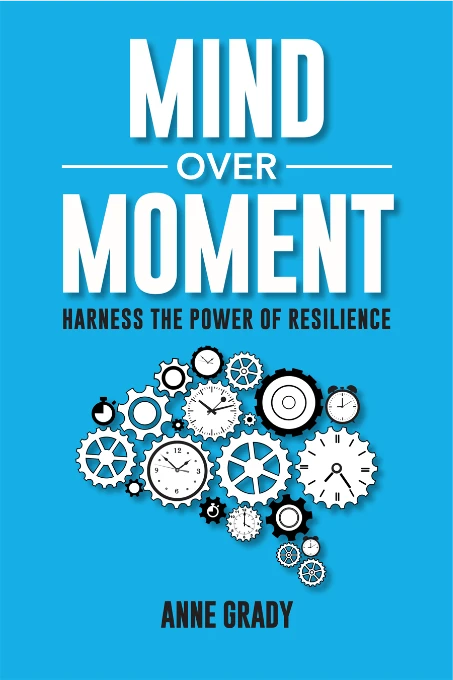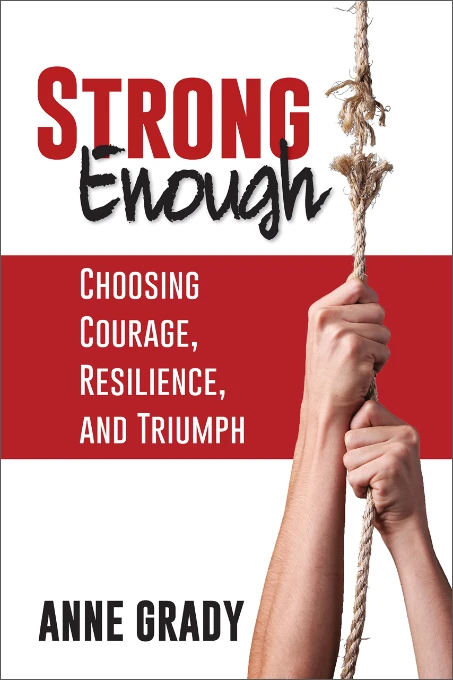Resilient Leaders Do These Five Things
Resilient Leaders Do These Five Things
Resilient Leaders Do These Five Things
I think it’s safe to say that for many professionals, we are no longer working from home, we are living at work. After all, if you’re sick, you can still knock out a few emails from the couch. It’s not like you have anywhere else to go. Watching a movie at midnight? Might as well answer questions from your global team who is in the middle of their workday.
We have lost the ability to disconnect, and according to a recent Gallup study, over two thirds of full-time workers feel burned out and exhausted because of it.
Over the past year, I’ve had the privilege of working with talented leaders at organizations like Microsoft, Johnson & Johnson, General Mills, ADP, Mastercard, Dell and dozens of others to help them build a culture of resilience.
I’ve seen the difference great leaders can make in their team’s ability to manage stress and beat burnout. I have also learned that the ability to embrace uncertainty, navigate ambiguity, and use adversity as a tool for growth are the new leadership currency and the fastest path to resilience.
Resilient leaders have teams with greater well-being. They proactively manage stress, harness the power of emotional intelligence, and create a growth mindset culture so that their team not only survives trying times, but gets stronger because of them.
While there are many characteristics that make someone a great leader, the most resilient leaders I’ve met share these 5 practices:
1. Lead by example.
When it comes to creating clear boundaries, making time for self-care, and recharging your mental and emotional battery, great leaders know that you have to practice these things before you promote them to others. When team members see their leader’s schedule blocked off for “self-care” or a “mental health day”, it sends a signal that it’s safe to do the same. Resilient leaders incorporate self-care and mental health strategies into one-on-ones, team meetings, and even performance reviews, making them part of the team culture.
2. Manage outcomes, not tasks.
Let’s face it, there is no shortage of work, and there’s is a pretty good chance that demands on your time and energy will not be decreasing anytime soon. It’s easy to get caught up micro-managing tasks, leaving many to feel smothered on top of exhausted. Share organizational goals and priorities and work with team members to identify their role in helping achieve them.
Create a set of shared expectations around the most important deliverables and provide flexibility in the way in which those are met. Rather than rewarding time spent, reward the outcome and give people the flexibility to achieve it in a way that makes the most sense for them and their family.
3. Check in often.
Despite economic struggles, concern for the safety of loved ones, home schooling, never ending Zoom meetings, and all of the other hurdles of the past year, ask someone how they are doing, and they will likely respond with, “I’m fine”. While that might suffice in passing, we know that we are anything but fine.
Seventy eight percent of adults say that COVID-19 has been a significant cause of stress in their life. One third of all people globally have struggled with anxiety and/or depression since the beginning of the pandemic. People are undoubtedly not fine and feeling like we should be makes things even worse. Connect with team members on an individual level, letting them know it is okay to let their guard down. Make time for personal check-ins, as well as status updates.
4. Be honest.
Many leaders resist sharing their own personal struggles or challenges for fear of being perceived as “weak”. In reality, leaders that share their own personal struggles teach their team it is safe to do the same. Rather than putting on a brave face, be authentic. It’s okay to share your struggles and how you are dealing with them as a way to create open dialogue within the team. This creates psychological safety, which has been found to be the number one determinant of high performing teams.
Since February, I have spoken to tens of thousands of employees who express feelings such as overwhelm, inadequacy, fear, exhaustion, burnout, and hopelessness. More interesting than the emotions themselves has been a collective sigh of relief when people realize they aren’t the only ones who feel that way. We are all in this together, and it is helpful to remind folks that you are human and share these emotions like everyone else.
5. Practice gratitude.
In another Gallup study, over 10,000 leaders were asked how important it was to express gratitude, appreciation, and praise to employees, and all unanimously agreed it was important. Yet when asked how many of them practice this with their teams daily, the answer was less than 10%. Sharing gratitude and appreciation for the people on your team has been shown to increase productivity, engagement, stay with the company, safety records, and customer satisfaction scores.
No one finishes a long day and says, “I wish my manager would stop appreciating me so much.” Gratitude is a simple practice that makes a big difference. People who receive praise and gratitude are also more likely to pay it forward.
As we work our way back to some semblance of normalcy, don’t underestimate the impact that you have in helping your team members recover. And remember, leadership is not a title or a place that you sit. Leadership is a collection of habits, behaviors, and skills that must be cultivated and practiced.
Intentionally communicate, check-in, share personal challenges, and let people know that resilience is not a genetic gift, but rather a muscle that grows stronger with practice.
Stay brave and resilient,
Anne
Subscribe to Anne's Resilience Reset Email!
Anne breaks down the daily habits and skills needed to grow and cultivate RESILIENCE.

Anne Grady is a Speaker, Author, and #TruthBomb Dropper.
Anne shares practical strategies that can be applied both personally and professionally to improve relationships, navigate change, and triumph over adversity. And she’ll make you laugh while she does it. Anne is a two time TEDx speaker, and her work has been featured in numerous media outlets, including Harvard Business Review, Entrepreneur, Forbes, Fast Company and Inc. magazines, CNN, ESPN, and FOX Business. She is the best selling author of 3 books. Her newest, Mind Over Moment: Harness the Power of Resilience, is available on Amazon now.
MAIN OFFICE
(512) 821-1111
BILLING & MAILING ADDRESS
P.O. BOX 5815 | ROUND ROCK, TEXAS | 78683






